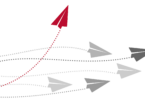Athens, Ga. – Julia V. Clark, director of two National Science Foundation programs and advisor to U.S. congressional committees on education and science, will visit with faculty, staff and students at the University of Georgia on Thursday, Sept. 30.
Clark is director of the Teacher Professional Continuum Program in the division of Elementary, Secondary and Informal Education (ESIE) and director in the division of Research, Evaluation and Communication (REC) in the Directorate of Education and Human Resources at the National Science Foundation (NSF).
For the past three years, Clark has been on assignment in the U.S. Congress, serving as principal advisor for science and technology issues to congressional members of the science committee and to the education and workforce committee in the U.S. House of Representatives.
Clark, who received her master’s in science education from UGA, has a distinguished record as a scholar, educator and administrator. She has published research in both science and education on a wide assortment of topics including cognitive development, science curriculum, epidemiology, women and minorities in science, and leadership development. Her book, Redirecting Science Education: Reform for a Culturally Diverse Classroom, has received national recognition. She has also written a book chapter on women in leadership published by the W.K. Kellogg Foundation. She has shared her expertise with audiences around the world as a speaker and seminar and workshop leader.
Clark will begin her UGA visit by attending a Black Faculty and Staff Breakfast, sponsored by the Office of Institutional Diversity, at the Georgia Center for Continuing Education from 8:30 to10 a.m. She will meet with Jenny Penney Oliver, director of academic initiatives at the college, and members of the college’s Diversity Center team from 10 to 11:30 a.m. in room G-23 of Aderhold Hall. She will then attend a luncheon with invited guests in the President’s Dining Room at the Savannah Room restaurant at the Georgia Center from noon to 1:45 p.m.
In the afternoon, Clark will meet with members of UGA’s science education faculty (2-3 p.m., room 211 Aderhold) and attend a Multiplicity Reception featuring students and faculty from the Center for Latino Achievement and Success (CLASE), the Dean’s Diversity Council, Teachers for English Language Learners (TELL) and the college’s Student Ambassadors group.
Clark has received several honors and awards over her career. She has been named American Association for the Advancement of Science (AAAS) Fellow in Science Education, W.K. Kellogg National Fellow, and has received the Outstanding Achievement in Government Award in Science and Technology; the Exceptional Women in Science and Technology Award, the Lily Foundation Award, the Distinguished Alumni Award, and the Outstanding Young Women of America Award.
Prior to joining the NSF in 1990, she was a tenured associate professor of science education at Texas A&M University. She has also been a faculty members at was Howard University, Clark Atlanta University, Albany State University and Morris Brown College. She has been a visiting professor at Memorial University in Newfoundland, Canada, the University of Maryland-College Park and George Mason University.
Clark received her doctorate in science education from Rutgers University, her master’s in science education from UGA and her bachelor’s in natural science from Fort Valley State College. She did additional graduate studies in environmental science at Yale University, in radiation biology at the University of California-Berkeley and in chemistry and biology at Emory University.
Clark has also served on several national boards and committees and is currently active on many of them including: chair, AAAS Education Committee (2003-2006); Advisory Committee for Student Science Enrichment Program; editorial board of the Journal of College Science Teaching; advisory board, education and instructional technology, Public Service Satellite Consortium; National Technical Advisory Board, National Urban Coalition; Women Equity Action League; and Board of Directors, Consortium of Southern Colleges for Teacher Education.







